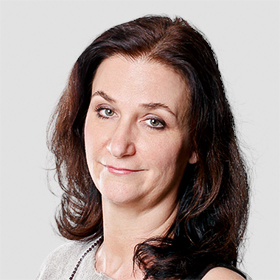Television documentary teams in Britain today are full of ambitious and capable women but most of them have to wait much longer than their male colleagues to become directors and earn a bigger wage.
The findings of the campaigning group We Are Doc Women (WADW), released this weekend, have revealed that gender equality is still a goal, not a reality, in factual programme-making.
The group’s startling research was gathered from a survey of 700 industry professionals, put together with an analysis of 21,433 television credits, and it exposes the gap between the rate of progression of women and men working on documentaries.
It found that women remain in lower-paid roles for longer than their male counterparts and that, while women are now heavily represented at assistant producer level, they earn about half the fee of the director. “Men get cameras, women get clipboards,” said one female assistant producer in a case study.
The WADW report also establishes that men are more frequently offered a second chance to direct. Nearly three times more of the women than the men surveyed claimed they had not been offered a second directing credit to follow up on a first job behind the camera.
The findings indicate that, despite having similar hopes of ascending the industry ladder, only 38 of every 100 women will reach a prestigious directing role in the average seven years that it takes someone to move up. In contrast, more than half of the men will have become directors over the same period.
“The findings of our survey are testament to what women in our industry experience daily in this line of work,” said Clare Richards, founder of WADW. “Women working in factual television are experiencing gender bias from the get-go. The cards are stacked against them, evidenced by the lack of trust for them to pick up a camera and start filming as early as men.”
WADW was set up in 2017 as a support group for women directors working in factual television in Britain and has since expanded to cover female producers, assistant producers and executive producers.
In response to the findings of its report, the group is now calling for broadcast networks and streaming platforms to commit to using a 50% quota of women directors across their factual output. Commissioning requirements currently include standards on diversity and disability but not on gender. The campaigners also want individual production companies to make a similar commitment to employing equal numbers of men and women directors.
Last summer, the group put out a high-profile public letter of complaint in reaction to the male-skewed Bafta nominations, particularly in the best director categories for factual and fiction programmes.
A WADW spokeswoman expressed disappointment at the time, saying: “This is 2020, not 1970. Why is this still an issue not only for women, but also for directors from diverse communities?”
It was unfair, the group argued, that for 13 years women directors had not been celebrated as winners in the factual directing category because of what they saw as an ingrained industry emphasis on hiring established or “named” directors.
This spring, Pippa Ehrlich, a South African-based first-time director, shared Bafta’s best documentary prize for My Octopus Teacher with her co-director, James Reed.
The new WADW data reveals this gender imbalance starts at the outset of a career, with men getting a chance to shoot earlier: 40% are offered camerawork while still at researcher level, compared with only 23% of women. Females are more likely to have to wait for their first chance when they become an assistant producer.
One woman producer interviewed for the report explained how difficult it can be to secure creative directing work: “I feel because I’m female I have not been as trusted to do technical/shooting roles that are the gateway roles to becoming a director in TV. I’m relied on to do producing, which requires female ‘soft skills’ of communication, diplomacy and organisation.”
Women’s rate of progression up the ranks is also demonstrably slower. Within two years, more than half of men move up from assistant producer level, compared with just a third of women.
And even when a woman makes it as a director, it is not plain sailing: 48% of the female directors asked said they are still regularly being offered non-directing roles, compared with just 31% of men. When they are offered these coveted roles again, 70% of women admitted their pay rate is regularly negotiated down, compared with under half of the men.











